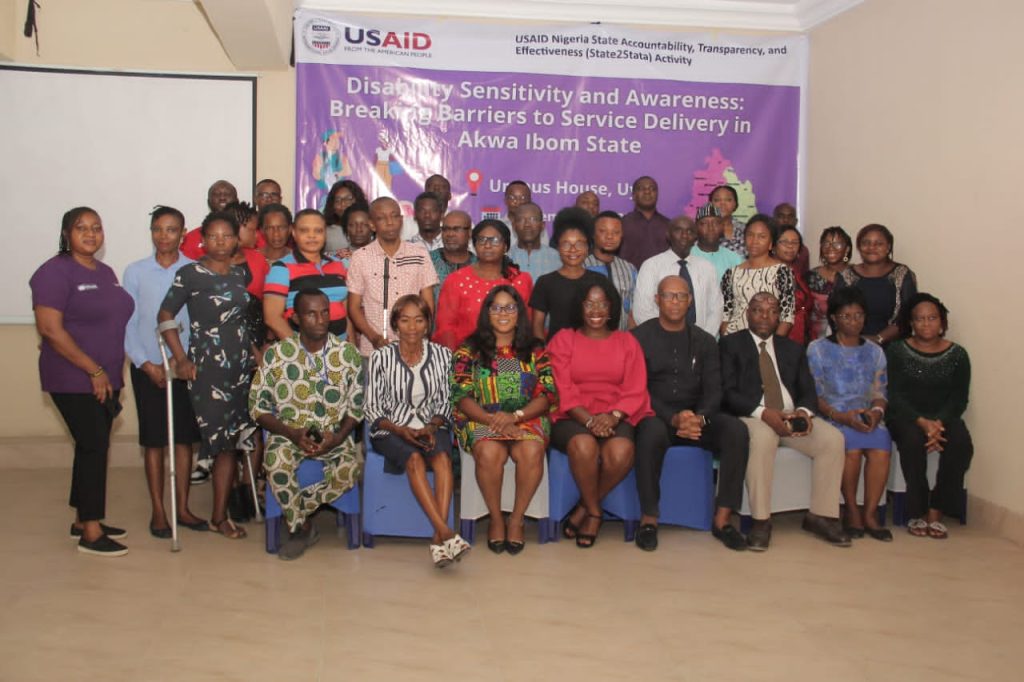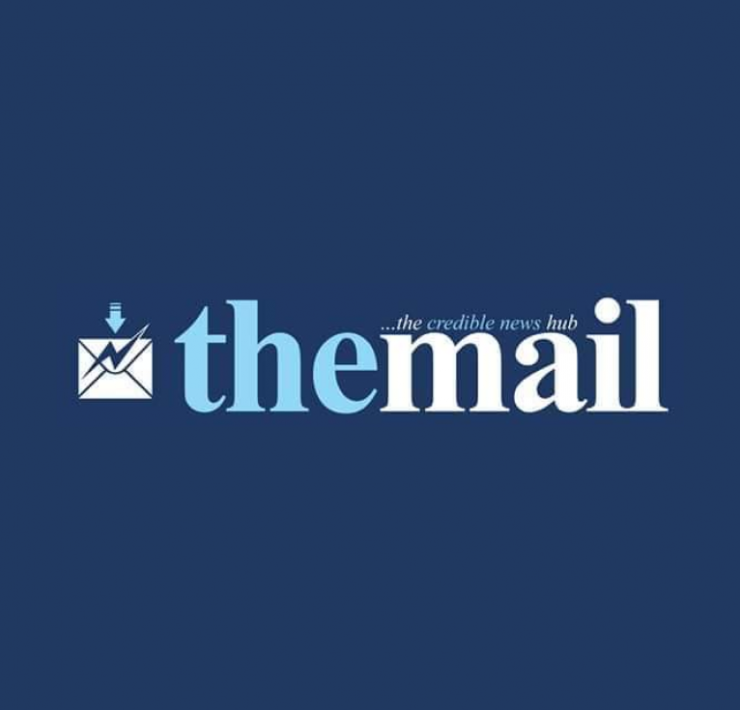Stakeholders, USAID State2State Call for Adoption of Disability Act in Akwa Ibom

Imó Etim
Key stakeholders in Akwa Ibom State including key government officials from the service delivery sectors (Education, Health and Water Sanitation and Hygiene), disability groups, media, community leaders as well as other USAID Implementing partners in Akwa Ibom State have called on the government of Akwa Ibom State to domesticate the Disability Act in Akwa Ibom State.
On January 23, 2019, President Muhammadu Buhari signed into law the Discrimination Against Persons with Disabilities (Prohibition) Act. Yet, about four years after the Act was signed into law, Akwa Ibom State is yet to join other States in Nigeria to adopt the Act.
The effect of the non-adoption of the Act in Akwa Ibom State was on the front burner on Wednesday, December 7, 2022 when United States Agency for International Development State Accountability, Transparency, and Effectiveness (State2State) Activity commemorated the 2022 International Day of Persons with Disabilities in Uyo, the Akwa Ibom State Capital.
Stakeholders at the gathering observed that since the assent of the Act in January 2019, only 13 out of 36 States and the FCT have adopted the Act into its laws. The States that have adopted the laws are Plateau, Lagos, Ondo, Kano, Ekiti, Anambra, Kogi, Niger, Kaduna, Bauchi, Jigawa, Kwara, and Federal Capital Territory (FCT). It was noted that no South-South State has adopted the Act with Akwa Ibom State missing among the list.
The participants in their resolution called on the government of Akwa Ibom State to join other well meaning States to domesticate the Disabilities Act 2018, thus hand more rights to persons with disabilities in the state and promote inclusion.
While speaking on the Disability Concept; Barriers and Enablers, Munachiso Odulana, State2State Citizens Engagement/Capacity Building Specialist exposed participants to various types of impairments to include; hearing, mental, speech, intellectual, physical and vision impairments. She noted that it was possible for a person to have more than one impairment away from the visible that are easily noticed, like intellectual impairment.
She explained that with the use of enablers, persons with disabilities can function properly in society when the barriers are handled, or eliminated.
She pointed out that there are ways in which society tends to perceive people with disabilities especially from the lens of pity and in need of help or welfare.
The Citizens Engagement Specialist highlighted how PWDs are neglected especially in service delivery despite the fact that most of them are trained or well educated to be carried along.
She highlighted the barriers facing people with disability to include; Attitudinal, physical, communication and institutional barriers. Other barriers against PWDs are discrimination, stereotypes, myths and prejudices.
On his part, the State2State Communication Specialist in Akwa Ibom, Smart Mathew took participants on identifying disabilities, the Washington Group questions, how best to interact with PWDs and the Disability Inclusive Communications. He noted that the ways we communicate with PWDs can help promote a sense of belonging to them in the society. Mathew stressed that PWDs have much to contribute to society if people will transform their mindset from seeing PWDs as persons to only being assisted.
He insisted that it is time for such ones to be seen as persons worthy of partnership for the growth of the society.
Harping on the need for proper disability-Inclusive programming, the Communication Specialist emphasized that partial inclusion, or integration is never inclusion thus decrying why people still segregate against PWDs, by not offering them roles to play in organizations, institutions hence adding value towards the growth of a given society.
It was also revealed that 80% of PWDs are in low and medium income countries, and literacy level is at 3% and 1% among the female population, indicating that countries with higher levels of poverty are prone to having more PWDs due to the barriers encountered and unavailability of enablers to aid in making life easier.
USAID Implementing Partners like; Breakthrough Action Nigeria, Heartland Alliance, Reaching Impact, Saturation, and Epidemic Control, RISE ( JHPEIGO), Centre for Clinical Care and Clinical Research (CCCRN), Excellence Community Education Welfare Scheme, (ECEWS) and other relevant stakeholders in the health, education and Water, Sanitation, and Hygiene (WASH) were present and partook in the interactive sessions, sharing experiences and meaningful ideas towards a more inclusive society.
Disability groups, special education and community leaders were also present on the occasion.









